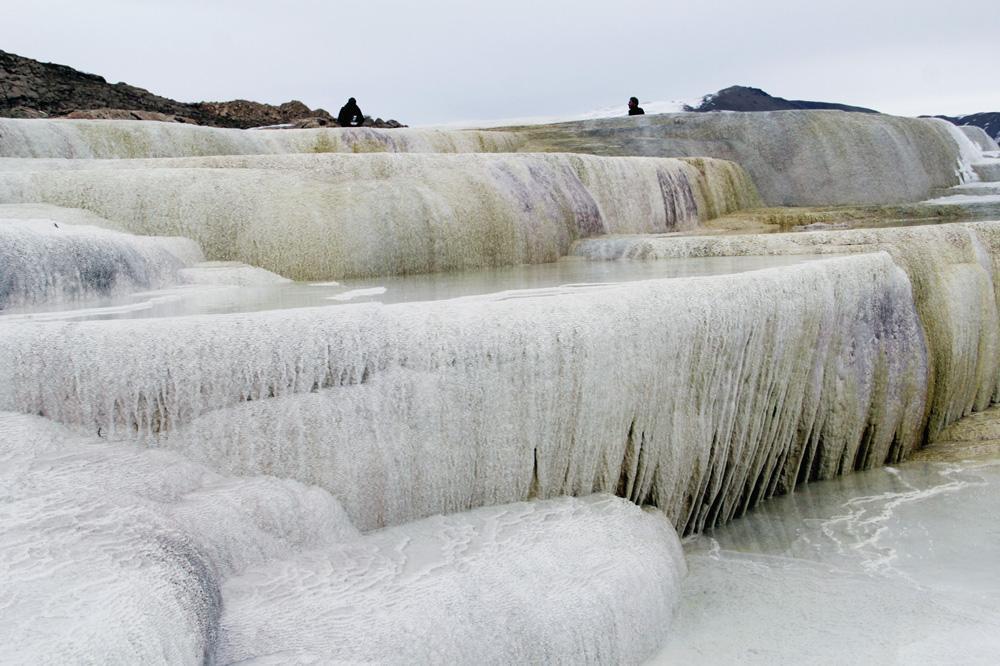
Travertines in the eastern province of Van’s Başkale district look almost like the world-famous Pamukkale, also known as Cotton Castle, in the Aegean province of Denizli, offering a picturesque view especially during the winter.
Located 35 kilometers from the district’s center in the Dereiçi neighborhood, the travertines are 2,400 meters high.
The travertines are located in a region where decades-long clashes between the Turkish security forces and the outlawed Kurdistan Workers’ Party (PKK) have driven tourists away, but officials say security has been restored.
Icicles created by the cold weather in the winter become photography aficionados’ favorite view to capture.
But it isn’t just tourists and photography aficionados coming to the travertines. People seeking to heal their illnesses and wounds find remedies in the sulfurous waters of the cotton castle.
Speaking to state-run Anadolu Agency, Başkale District Governor and Deputy Mayor Abdulselam Öztürk said the district was home to many historic and natural beauties but they failed to promote them because of clashes in the region.
Öztürk said that after the place was commissioned by the Interior Ministry, they focused on projects in the tourism, economic, social and cultural fields and they were ready to support the private sector for the development of the region.
He said tableland tourism was important in the Black Sea region and similar tableland existed in the eastern region, too.
“Terror was an obstacle to the development of tableland tourism [in our region]. If tourism facilities open here, we will contribute to the regional economy. Iranians want to come to see these places; Van has a big potential. Arab tourists want to go to the Black Sea region and see greenery in tablelands. We have travertines that are similar to Pamukkale in Denizli. Local and foreign tourists used to visit these places before terror. The region has suffered a lot from terrorism. I hope the state will make the region open to tourists from now on,” he added.
Öztürk also said the region could be used for health tourism with the permission of the Health Ministry.
“The private sector should come here with the state. We can take the initiative as the state. We are ready to contribute to the private sector and help those who want to carry out a project here,” he added.
Harun Özaras, a tour guide in the region, said the number of tourists increased in the region when terror finished.
“Now that the temperature is below zero and the water is not cold, tourists should come, people should no longer have prejudices against our region,” he said.